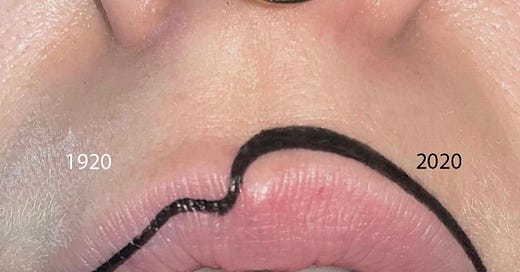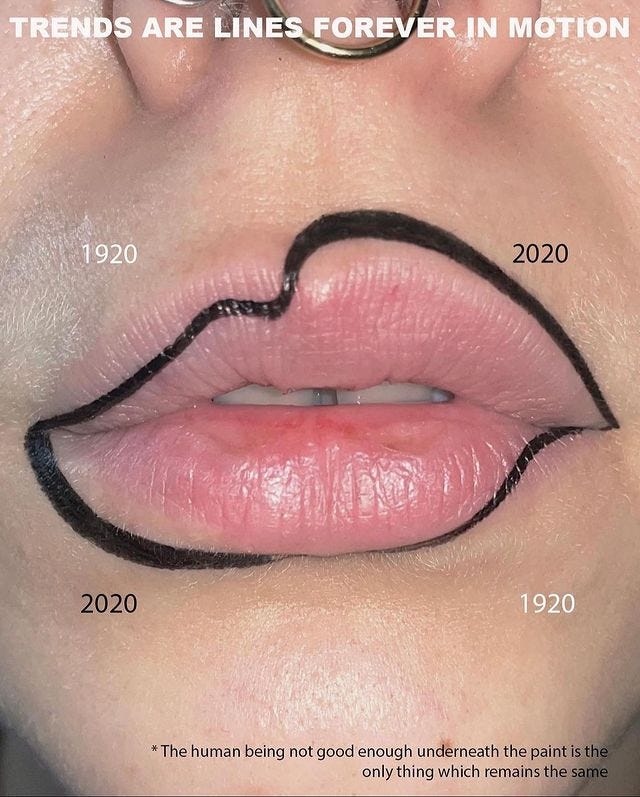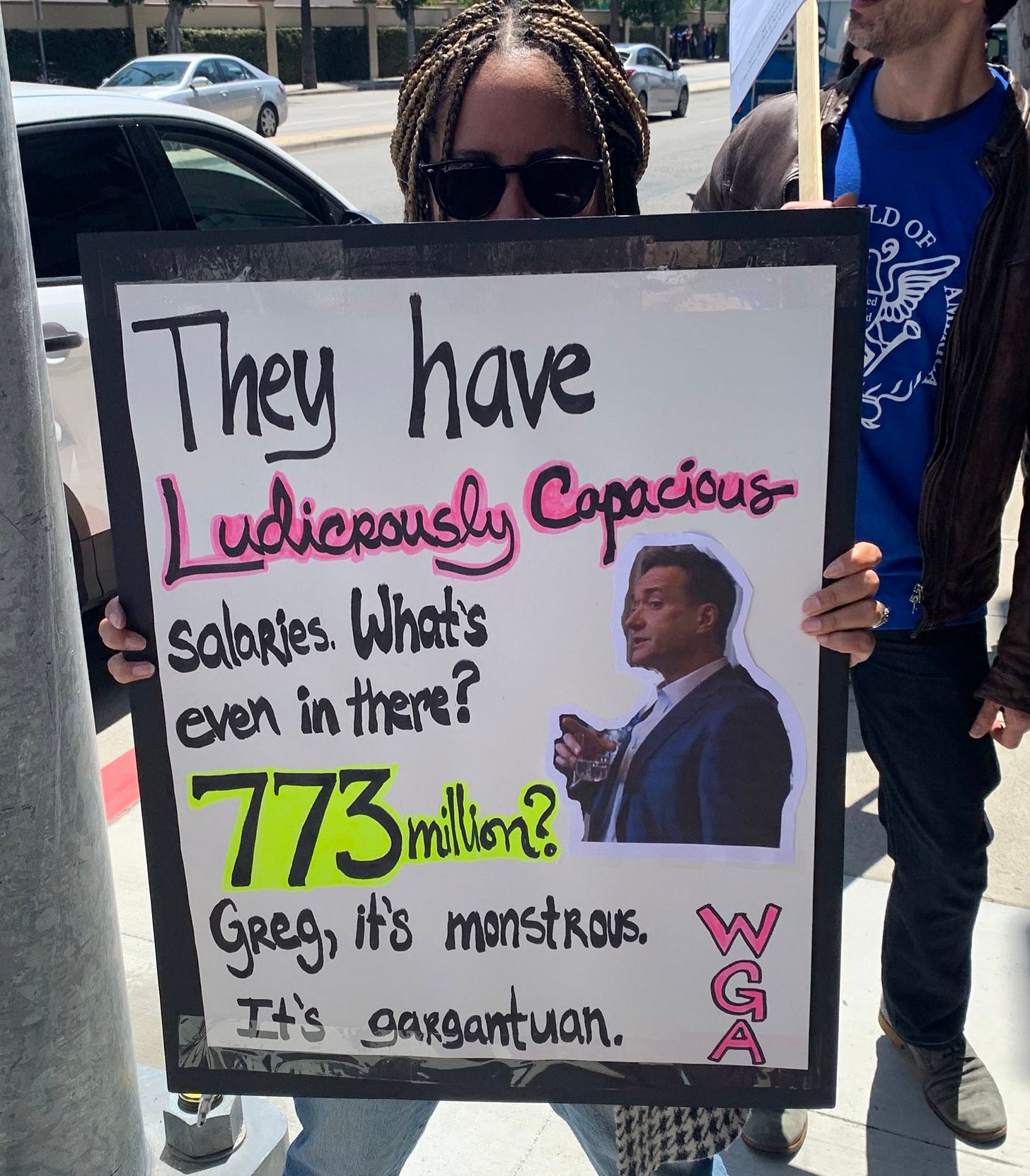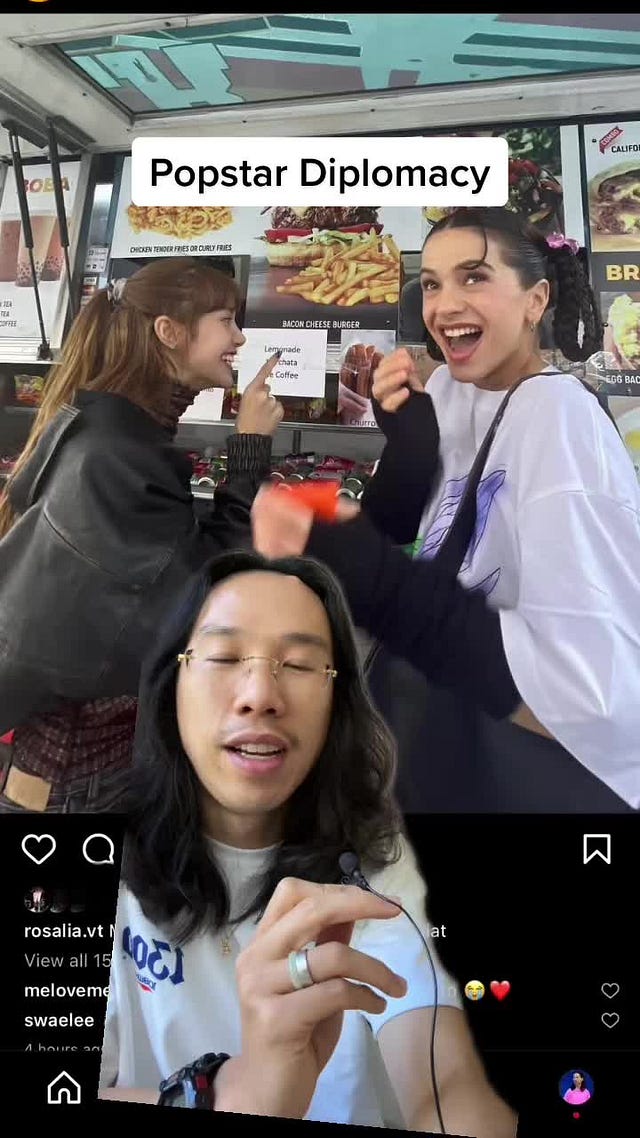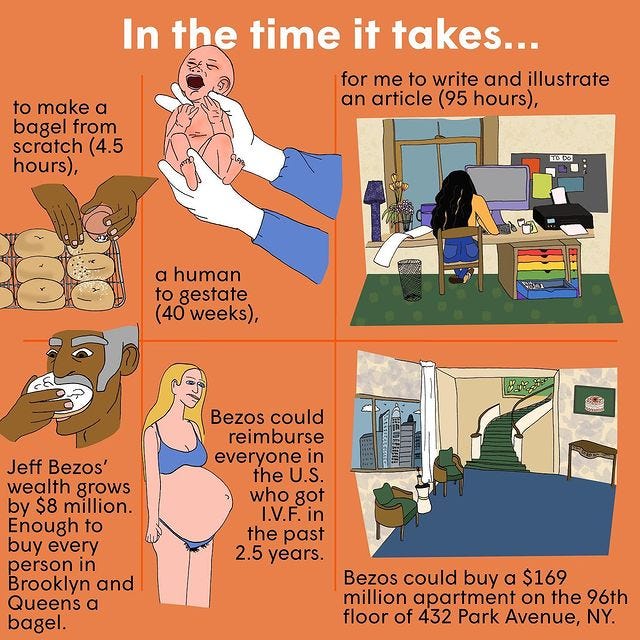I’m not going to lie, I feel like for a week, my mind has been out of the loop. I always ask people I meet: how do you deal with being jaded? A wise person (@Lydia Pang - Thank you!) had this answer, and I think about it all the time: Allow yourself to take breaks…marinate on what truly matters, for you and your work.
With that simple thought, I humbly bring you this issue:
Dupe culture: the humble brag
The dupes I saw when I was growing up straight up sucked. Now, not only do the look real (There’s tests - I failed), they look good. And as our consumer culture is racing against ourselves faster than we can say go, dupes are finding their place. Being a fraction of the price, being able to bag a dupe and pass it off feels like a IYKYK, a club that you’ve found yourself part of. It’s like when you find vintage Tabis on Vinted sold for 40e, and then being able to pass them over or get another dupe when the next trendy it bag reveals itself.
There is a smug superiority that comes with luxury bags — that’s sort of the point — but to my surprise, I found that this was even more the case with superfakes. Paradoxically, while there’s nothing more quotidian than a fake bag that comes out of a makeshift factory of nameless labourers studying how to replicate someone else’s idea, in another sense, there’s nothing more original.
It’s also a nod to the economic climate we’re in. We're proud members of the self-aware girlie generation, witnessing the rise of "dupe-influencers" because, let's face it, it's nearly impossible to own both the Staud Scotty bag and the Gucci Jackie bag simultaneously. The mindset shift from sad to smart shows reprioritisation of spending. But, let's not overlook the fact that while opting for cheaper dupes may appear sustainable, the mass production of these replicas (be it clothing or bags) inevitably still puts pressure on workers within the supply chain. And so as we continue to ride the dupe culture wave, we’re breathing life to fast fashion in a different form.
let me know your thoughts about this in the comments…
Writers' Strike and the Shifting Landscape of Content Creation
Negotiations aimed at securing fairer working conditions for members of the Writers Guild of America fell apart, resulting in the first writers' strike since 2007. A strike which has led to some of the pause in production of some of our favourite shows (Stranger Things; Severance etc). Some industry observers argue that the focus on profits and traffic in the streaming industry, (a reason for the increase of mid-tv).
One significant demand by the writers is “that studios agree not to use AI to write or rewrite stories”. This demand carries significant weight as it raises critical questions about the future of content creation. The closure of Buzzfeed News (making way for AI writers) and the mass layoff of PaperMag's editorial team, further shows the gravity of the situation and forces us to question what lies ahead for the next era of content?
see also: THE BEST SIGNS ON THE PICKET LINE
finishing thoughts:
The great business theorist Peter Drucker didn’t think all that much of ideas. “Ideas are cheap and abundant,” the management expert said, “What is of value is the effective placement of those ideas into situations that develop into action.”
and I can’t stop thinking about this analysis by Derrick Gee on POPSTAR DIPLOMACY:
field notes
I also can’t stop thinking about this article: Are we losing touch with reality?
More proof we are in the absurd era and what brands are doing about it;
what does the end of acne positivity ads mean;
A history of Buzzfeed News;
Is Sandy Liang the next Supreme: Why Sandy Liang x Salamon collaboration was on point, with models inspired by her favourite Pokemons;
I’m a big fan of notion, and this is an article about how Notion used community to grow its product;
when relatable stops being relatable: thoughts on Emma Chamberlain’s Cartier ad;
Is menswear entering ‘yuppie-core’ era?
Avoiding spoilers 101;
Moslam Rabat’s collaboration with Whatsapp to celebrate how small our world is within the world of communication;
Air New Zealand on their new economy sleep pods;
Mona Chalabi, data journalist, wins Pulitzer prize for her illustrated reporting and commentary.

